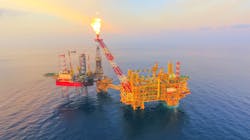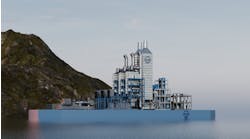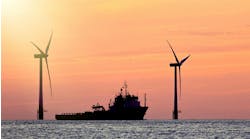Execs share their offshore oil and gas methods for a sustainable future
Editor's note: This story first appeared in the March-April 2023 issue of Offshore magazine's Energy Transformation Strategies Special Report.
Compiled by Ariana Hurtado, Editor and Director of Special Reports
—Gerbert Schoonman, Senior Vice President, Production, Hess Corp.
“Petrobras is committed to a transition to a low-carbon global economy, and it aims to provide society with affordable energy through safe, efficient, low-cost operations, with lower emissions. To this end, we have implemented pioneering solutions, adopted management indicators and been developing new technology to ensure oil and gas is produced with low emissions. Some of our main solutions include initiatives to reduce gas flaring; carbon capture, utilization and storage; methane detection systems; all-electric systems (electrification for offshore platforms); gas recovery systems; energy efficiency measures and projects to reduce emissions from refineries. Our Strategic Plan (2023-2027) continues to focus on value generation and aims to increase the number of projects on reducing carbon emissions. US$3.7 billion on projects to help with the decarbonization of operations (scopes 1 and 2) are planned, as well as US$600 million toward the BioRefino Program. Petrobras will be installing the first plant in the country dedicated entirely to the production of 100% renewable diesel and aviation biokerosene (BioQAV), as well as other products with a lower carbon footprint, in Cubatão [São Paulo, Brazil]. The company will be using its technical capabilities to make a decisive contribution to reducing greenhouse-gas emissions in the country.”
—Jean Paul Prates, President, Petrobras
—Adam Sheikh, Vice President of Decommissioning and Energy Transition, Repsol Sinopec
—Bob Abendschein, Executive Vice President and COO, Talos Energy
—Tony Cudmore, Executive Vice President Strategy and Climate, Woodside Energy









